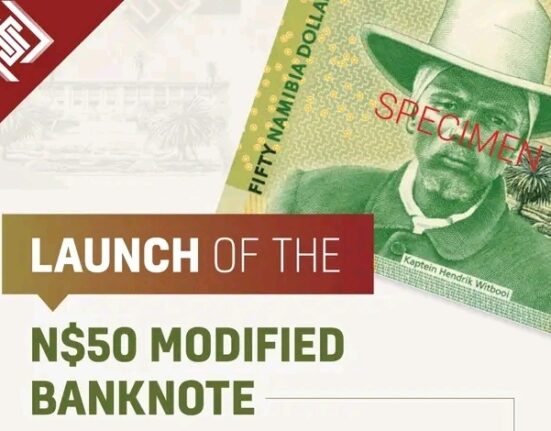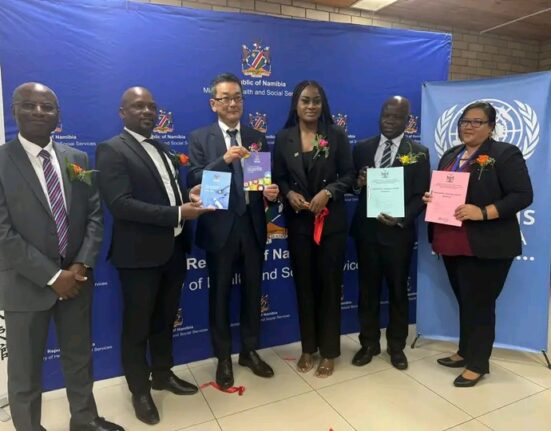Windhoek, the capital city of Namibia, is not only the political and cultural heart of the country, but it has also evolved into its economic powerhouse. Over the past few decades, Windhoek has transformed from a modest colonial town into a thriving metropolis and a central business hub in Southern Africa. In this article, we delve into the factors that have contributed to Windhoek’s rise as Namibia’s business hub and explore why it continues to attract both local and international investment.
1. Strategic Location and Infrastructure Development
Windhoek’s location in central Namibia has played a pivotal role in its rise as the country’s business hub. Situated at the crossroads of major regional trade routes, Windhoek has become an important logistical center for the distribution of goods within Namibia and beyond. Its proximity to neighboring countries such as South Africa, Angola, and Botswana allows businesses to easily tap into regional markets, making Windhoek a gateway for trade in Southern Africa.
The city has seen significant infrastructure development in recent years, which has bolstered its economic growth. Key transportation networks, including a modernized road system and an international airport, have made it easier to move goods and people across the country and into neighboring regions. The city’s road infrastructure is complemented by a rail network that connects Windhoek to the port city of Walvis Bay, further enhancing its logistical capabilities.
Windhoek’s robust infrastructure, including modern business parks, high-rise office buildings, and reliable utilities, continues to attract businesses from a wide range of sectors, solidifying its position as Namibia’s business epicenter.
2. Government Support and Investment Policies
The Namibian government has played a crucial role in fostering Windhoek’s growth as a business hub. Since Namibia’s independence in 1990, the government has implemented policies aimed at creating a conducive environment for both local and foreign investment. Windhoek, as the capital city, has been the primary beneficiary of these policies, with the government prioritizing urban development and economic diversification.
One of the key initiatives that have attracted investment to Windhoek is the creation of free trade zones and business incentives. These policies offer tax breaks, reduced import duties, and other financial incentives to businesses that set up operations in the city. Additionally, the government has supported various sectors, including manufacturing, agriculture, and tourism, by offering subsidies and funding opportunities.
The establishment of institutions like the Namibia Investment Centre (NIC) has also helped streamline the process of establishing businesses in Windhoek, offering investors advice, information, and assistance with regulatory processes. This pro-business environment has made Windhoek an attractive location for both local and international companies looking to expand into Namibia.
3. Thriving Commercial and Financial Sector
Windhoek’s commercial and financial sectors have been central to its rise as a business hub. The city is home to Namibia’s leading banks, insurance companies, and financial service providers, making it the country’s financial center. The presence of major institutions such as First National Bank (FNB), Standard Bank, and Bank Windhoek has facilitated business transactions, investments, and access to credit for both individuals and companies.
In addition to its strong banking sector, Windhoek hosts the Namibia Stock Exchange (NSX), which is a crucial player in the Southern African financial market. The NSX has allowed businesses to raise capital through the issuance of shares and bonds, and it has opened up opportunities for foreign investment. The NSX has contributed to Windhoek’s reputation as a financial hub and has attracted international investors looking to engage with Namibia’s growing economy.
Windhoek’s business-friendly financial ecosystem continues to foster innovation and growth, with a thriving startup scene and the rise of digital financial solutions. This dynamic sector makes the city an appealing destination for entrepreneurs, investors, and multinational corporations alike.
4. Industrial Growth and Diversification
One of the factors that have contributed to Windhoek’s emergence as a business hub is the diversification of Namibia’s economy. Traditionally, Namibia’s economy has been heavily reliant on mining, agriculture, and fishing. However, Windhoek has become a key center for industrial growth, with significant investments in sectors such as manufacturing, construction, and technology.
The city’s industrial park and business zones have attracted manufacturing companies in industries such as food processing, textiles, and building materials. The establishment of manufacturing hubs in Windhoek has not only boosted job creation but has also led to increased export opportunities for Namibian-made products. This industrial diversification is essential for Windhoek’s long-term economic stability and has positioned the city as a regional leader in trade and production.
Windhoek has also become a center for innovation in technology and ICT, with several tech startups and companies offering software development, digital marketing, and other technology services. As the demand for digital solutions increases, Windhoek has become an attractive location for tech entrepreneurs seeking to tap into both local and regional markets.
5. Tourism and Hospitality Sector Boom
The tourism and hospitality sector in Windhoek has experienced tremendous growth, further establishing the city as a major business hub. Namibia’s unique landscapes, wildlife, and cultural heritage have made it an attractive destination for international tourists, and Windhoek serves as the gateway for those visiting the country.
The city’s expanding tourism infrastructure, including luxury hotels, restaurants, and conference facilities, has attracted international hotel chains and travel agencies. Events such as trade shows, conferences, and exhibitions are regularly held in Windhoek, drawing business travelers from around the world. This has not only increased the demand for hospitality services but has also provided opportunities for local businesses to capitalize on the tourism sector’s growth.
The government’s efforts to promote Namibia as a tourist destination, combined with the city’s central location, have made Windhoek a key player in the Southern African tourism industry. This boom in tourism has contributed to the city’s economic diversification, creating jobs and supporting local enterprises in hospitality, retail, and service sectors.
6. Strong Human Capital and Skilled Workforce
Windhoek has become a center of education and skill development, with several universities, vocational training centers, and technical colleges located in the city. The availability of skilled labor in fields such as engineering, finance, IT, and healthcare has played a significant role in attracting businesses to set up operations in Windhoek.
Namibia’s education system has produced a highly educated workforce, which is essential for the success of businesses in the city. Local universities and training institutions also offer specialized programs in business management, entrepreneurship, and international trade, further equipping the workforce to meet the demands of a rapidly evolving business landscape.
This skilled labor force, combined with the city’s diverse cultural and professional environment, has helped create a competitive edge for Windhoek as a business hub in the region.
Windhoek’s journey to becoming Namibia’s business hub is a testament to the city’s strategic location, strong infrastructure, government support, and economic diversification. The city’s thriving financial sector, industrial growth, and tourism boom have contributed significantly to its economic success. As the Namibian economy continues to evolve, Windhoek remains at the center of it all, attracting businesses, investors, and entrepreneurs from around the world.
With a skilled workforce, a pro-business environment, and a dynamic economy, Windhoek is poised to continue its growth as a key business hub in Southern Africa. Its central role in regional trade, industrial production, and innovation ensures that it will remain a key player in the Southern African economic landscape for years to come.













